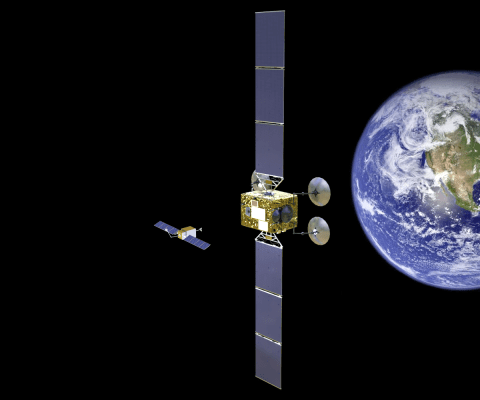Satellite servicing company Starfish Space has closed $7 million in funding to accelerate the development of a space tug vehicle that can extend the life of spacecraft and get rid of orbital debris.
Servicing satellites used to be nigh impossible, due to the extreme costs associated with going to orbit. Essentially, once a spacecraft was launched, well — God’s speed. The handful of successful servicing missions have historically been conducted by government entities like NASA, and the repairs were conducted by astronauts — for example, when NASA launched five crewed Space Shuttle missions to repair or replace systems on the Hubble Telescope in the 1990s.
But like everything else in the space industry, private industry has largely started taking up the problem of in-orbit servicing. Enter Starfish Space. The Kent, Washington-based startup was founded in 2019 by Austin Link and Trevor Bennett, two former Blue Origin engineers. Starfish is developing what it calls the Otter space tug, a small spacecraft that the company says will be capable of capturing and moving objects in orbit.
Chiefly, the startup says this capability could be used to dispose of space junk and extend the useful life of large spacecraft in geostationary orbit. However, Starfish also says that the space tug tech could eventually be used as autonomous in-orbit robots for a whole range of purposes related to the future space economy, including mining, manufacturing and recycling.
In addition to the space tug, Starfish is also developing an autonomous software system, Cephalopod, to perform rendezvous, proximity operations and docking. The company is testing the Cephalopod software in conjunction with a demonstration of a thruster system by Benchmark Space Systems, on Orbit Fab’s Tanker-001 Tenzing demo refueling satellite. (Orbit Fab was a finalist in our TechCrunch Disrupt Battlefield in 2019.)
The funding comes just one month after Starfish won a $1.7 million Phase II SBIR contract from the U.S. Space Force for the continued development of the Cephalopod software. This latest round was co-led by NFX and MaC Venture Capital, with participation from PSL Ventures, Boost VC, Liquid2 Ventures and Hypothesis.
